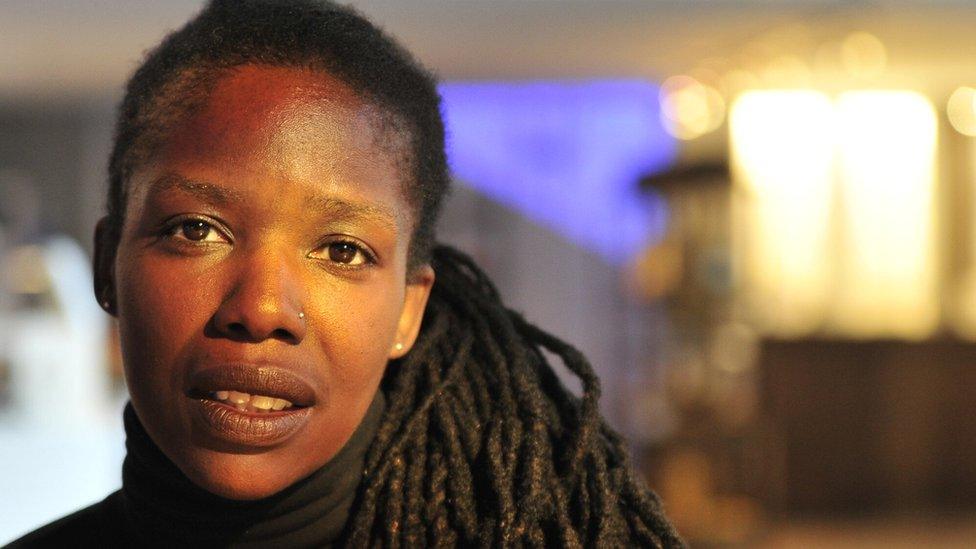'My consultant told me I was a medical mystery'
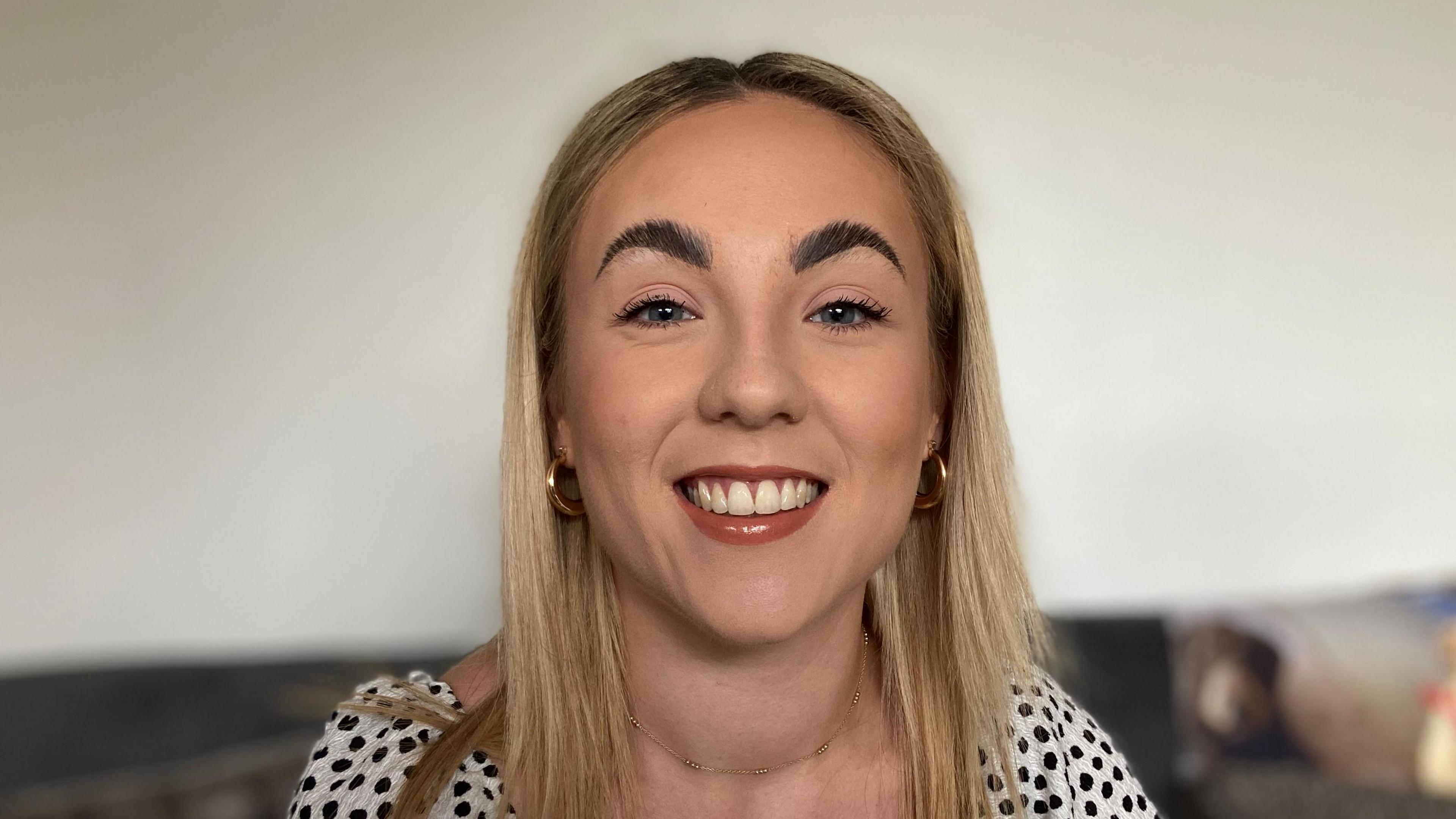
Gemma Cutler wants to use her experience to raise awareness
- Published
One in 10 women experience the intense pelvic pain and heavy periods caused by adenomyosis - yet little is known about it.
The condition involves the lining of the womb growing into the muscle in the wall of the womb. Sufferers describe being dismissed by clinicians and having to wait years for a diagnosis, to then be told a hysterectomy is their only option.
The BBC spoke to two women and a GP who are calling for the condition to be made a funding priority.
A spokesperson from the Department for Health and Social Care said: "This government will prioritise women’s health as we reform the NHS to make it fit for the future."
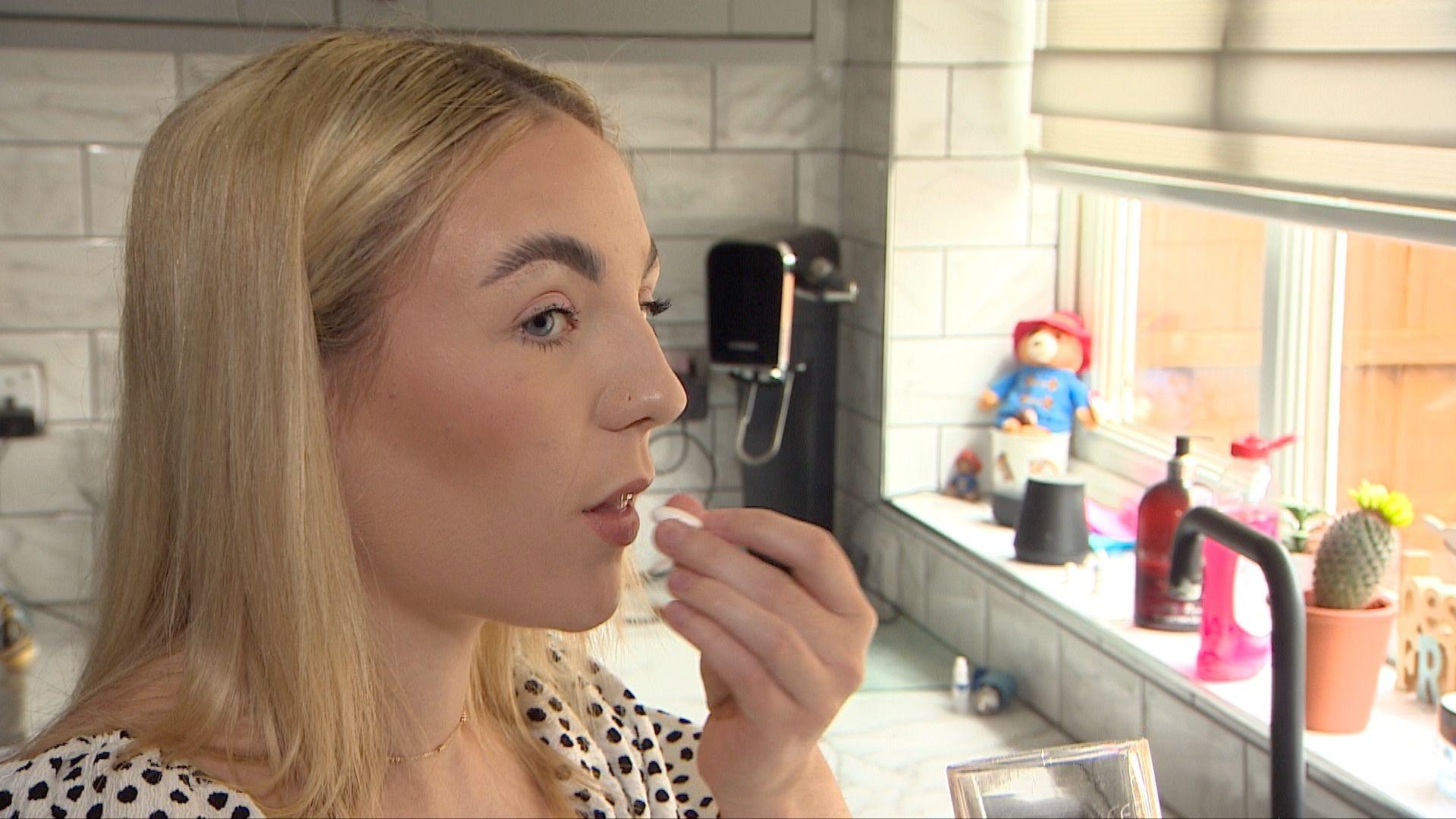
Ms Cutler tries to manage her symptoms with painkillers
Gemma Cutler, now 22 and from St Neots, Cambridgeshire, started experiencing excruciating pain in her pelvis and abnormal, worryingly heavy periods as 14-year-old.
She did not know it then - and would not for several years - but she was experiencing the symptoms of adenomyosis.
"The pain was 10 out of 10. There were times I couldn't get out of bed, I was bleeding through sheets and sheets and sheets.
"It's hard to listen to a teacher when you're cramped over in pain; you have to put your hand up to go to the toilet and then you're worried if you will get there in time.
"It was horrendous; I would struggle through the whole day."
Ms Cutler's ordeal is not a simple matter of tricky periods, as she had been told, but a condition involving the lining of the womb growing into the muscle in the wall of the womb.
It is also a story of not being believed.
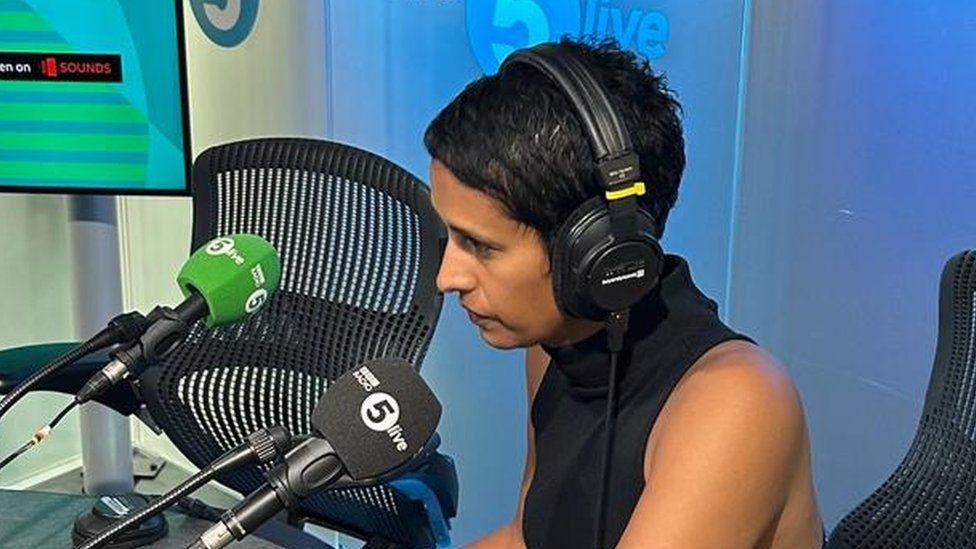
Naga Munchetty told 5 Live listeners about her adenomyosis in May last year
'Medical mystery'
Many people had not heard of adenomyosis when in May last year the BBC Breakfast and 5 Live presenter Naga Munchetty shared her diagnosis, which she said had followed decades of "pain that takes my breath away".
Munchetty's experience chimed with Ms Cutler, who pleaded for answers from clinicians who appeared baffled and incredulous.
Ms Cutler recalls "swapping contraceptive pills like Smarties" during her teens with little or no effect until an ultrasound gave her the answer for which she had been looking. It had taken a decade.
"I was described as a medical mystery by a consultant at the local hospital, [who said] 'there is no reason why you are in this much pain - you don't have endometriosis, you don't have adenomyosis'," she adds.
"I honestly thought I was going crazy; it makes you feel like you're a mystery, that there are no answers.
"Just because they [clinicians] can't see it, doesn't mean it's not there.
"That's what I struggled with the most; mentally I was in a very dark place."
What is Adenomyosis?
Adenomyosis is a condition where the lining of the womb starts growing into the muscle in the wall of the womb. There are treatments that can help with any symptoms.
It is more commonly diagnosed in women over the age of 30. It can affect anyone who has periods.
Some symptoms of adenomyosis affect your periods, such as:
Painful periods
Heavy bleeding during your period
Other symptoms can happen any time in your menstrual cycle, such as:
Pelvic pain
Bloating, heaviness or fullness in your tummy
Pain during sex
Some people with adenomyosis have no symptoms.
Source: www.nhs.uk, external
'Education and empathy'
The condition was so debilitating for Ms Cutler that she had to give up being a student nurse at Addenbrooke's Hospital in Cambridge, and now runs her own home care business.
Although she now knows what causes her pain, she still faces the harsh reality that painkillers "don't even touch it" and the only, and very drastic, solution is a hysterectomy.
"It's bittersweet," she says.
"I've got a diagnosis, I know that it's there and I know I am not nuts, but it still might impact my fertility.
"I'm still very worried about what the future holds."
Ms Culter is keen to raise awareness of the condition, which is not dissimilar to endometriosis and affects as many women. Endometriosis involves tissues similar to the lining of the womb growing elsewhere in the pelvis.
"We need more education and more empathy," says Ms Culter, who has both conditions.
"Women's health is not talked about; we only started talking about the menopause five or six years ago and [it] is only now in the news.
"Adenomyosis should be given the same importance."
'Bowling ball in my pelvis'
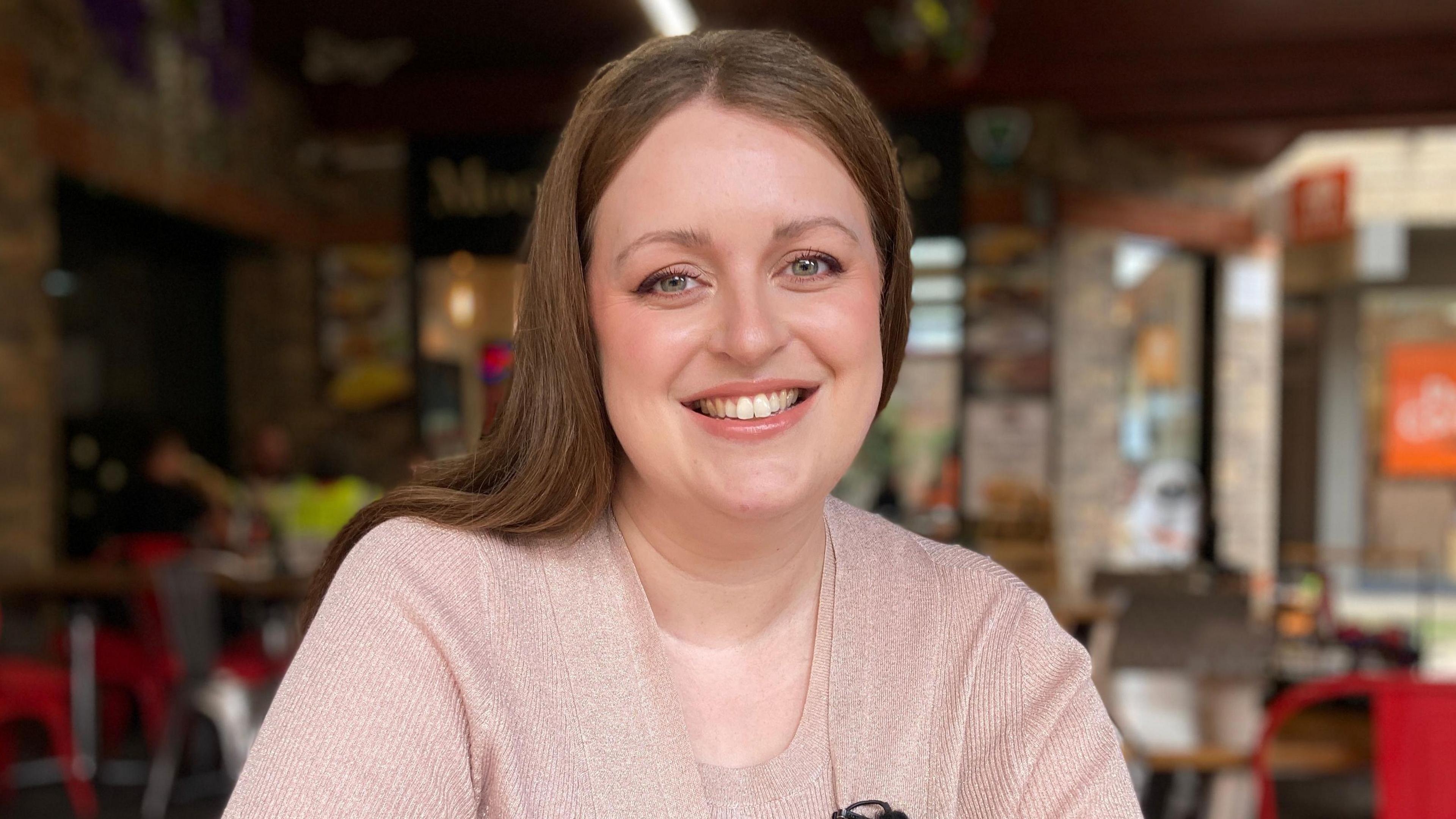
Jen Moore began campaigning after recovering from her hysterectomy
Jen Moore also experienced both uterine conditions, along with fibroids, and creates a vivid image of what it felt like.
"I used to describe the pain as a bowling ball in my pelvis trying to snap my bones from the inside out," says the 35-year-old, from Papworth Everard, Cambridgeshire.
"It is this weight inside of you, and then you have the other side of it, which is the blood loss, the fatigue, the nausea, the vomiting and the passing out.
"When you combine all those things, and the fact they were every day, not just on my period, you can see how it impacts every single area of your life."
Like Ms Cutler, she was given the brush off by medics while being so consumed by adenomyosis it ended her career. As a wedding cake maker for nine years, she would often be wracked with pain on the bakery floor while her husband had to step in to finish her creations for expectant customers.
"A doctor said to me 'you can't possibly be struggling, you look perfectly fine'," she adds.
"I lost my career, I lost my financial independence, my body confidence, friends.
"It affects every aspect of your life."
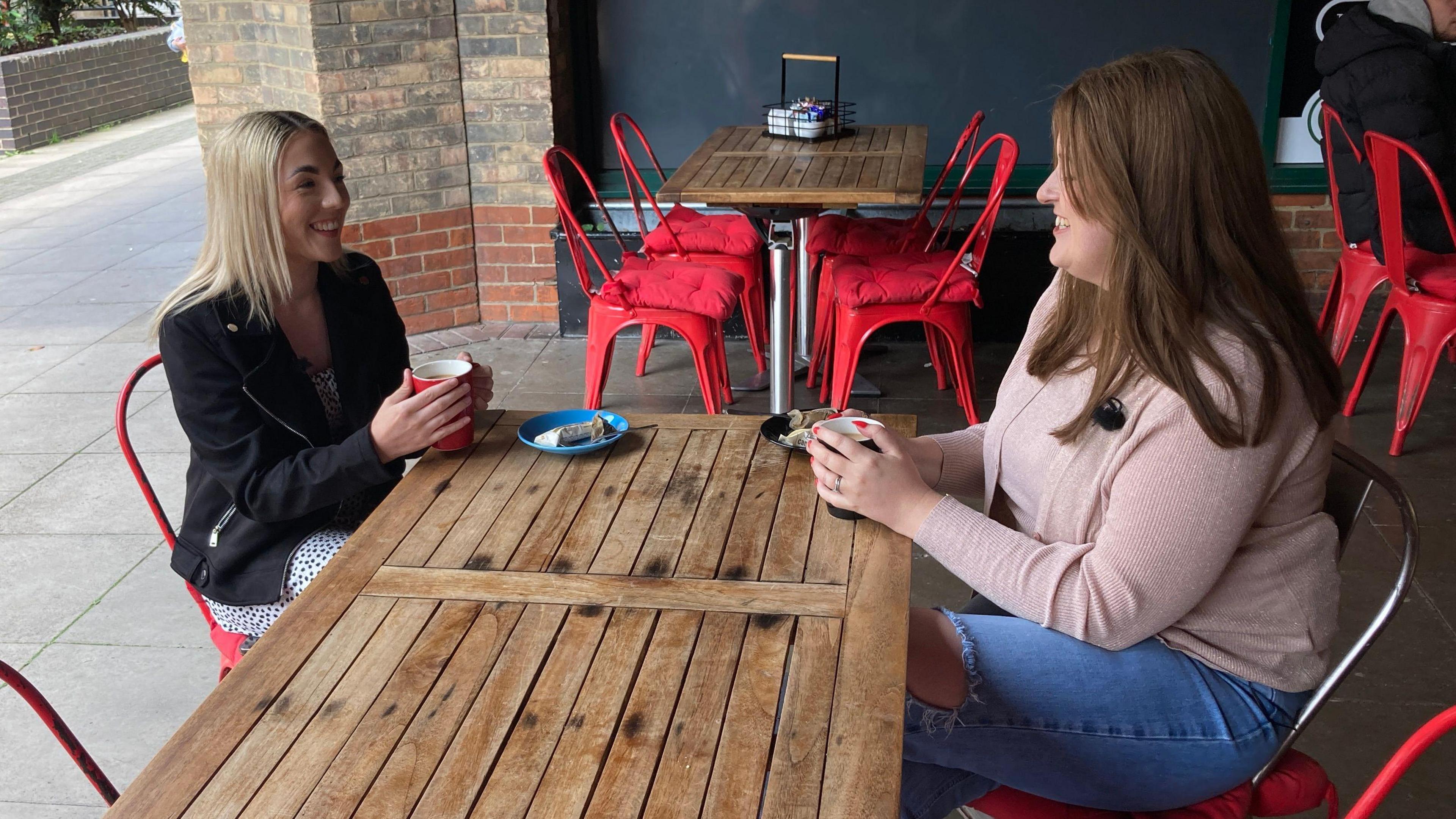
Ms Cutler and Ms Moore have shared their experiences on social media
While awareness is growing around endometriosis, she feels adenomyosis is "a whole other beast" - lagging behind in education and research.
"I always say adenomyosis is a puppy running after endometriosis, hoping scraps will get dropped.
"Most people haven't heard of it - even doctors haven't heard of it.
"The number of times I've had to explain adenomyosis to a clinician is mind-blowing."
'Huge relief'
Ms Moore had a hysterectomy last year after reasoning that her mental health was more pressing than any future desire she and her husband may have for children.
"I could not see life beyond pain," she says.
"As soon as I woke up that bowling ball was gone.
"That has been a huge relief in my life - I would do it again tomorrow."
Now a full-time women's health campaigner, she is desperate for adenomyosis to be taken more seriously by politicians.
The women's health ambassador for England, Prof Dame Lesley Regan, said in June last year that the NHS in England was failing women, who should be able to self-refer to specialists.
"Please prioritise women's health - it's costing us our lives," says Ms Moore.
"I would love to see ring-fenced funding for research and larger capacities for treatment because we are not being prioritised and it's not good enough."
Hysterectomy option 'atrocious'
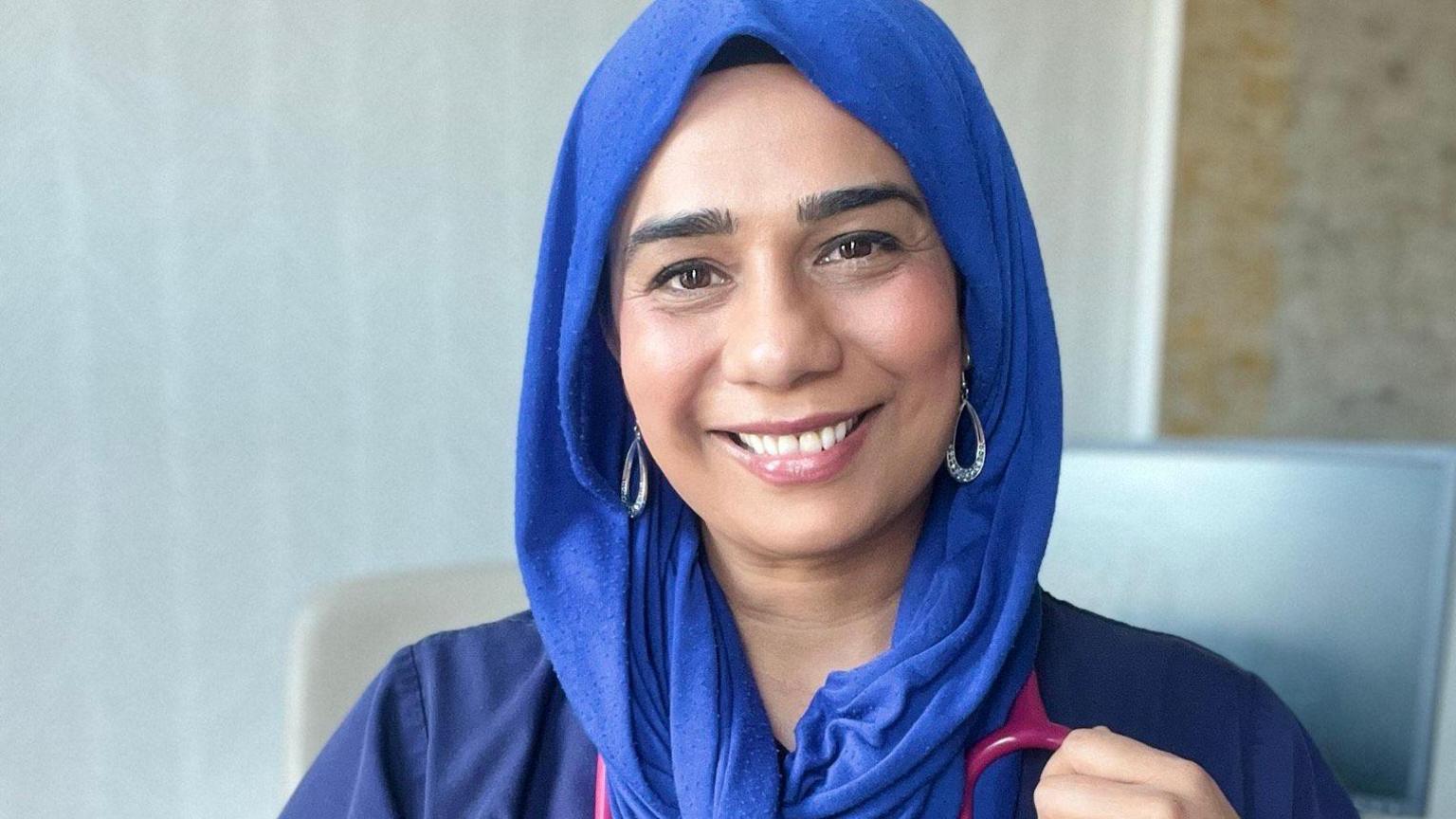
GP Dr Nighat Arif films educational social media videos on adenomyosis
Dr Nighat Arif, a GP in Tring, Hertfordshire, has a special interest in women's health and has posted videos on social media to educate colleagues and the public about adenomyosis.
"The problem with diagnosis is that [it is] not seen on an ultrasound unless you go looking for it, or unless the disease has advanced," she explains.
"We need to take away the taboo and shame around periods and stop normalising heavy and painful periods. It's common, but it's not normal.
"We need better research in this area because we don't fully understand any treatments.
"The case now is we offer you a hysterectomy - in my opinion that is atrocious that that's the only option we are offering women."
She adds there should be better education for GPs, with women's health being a mandatory topic at medical school and ongoing in practice.
The Department of Health and Social Care said Health Secretary Wes Streeting had ordered a "full and independent" investigation into the state of the health service and its findings would feed into the government's 10-year plan for "deep-rooted reform".
"It is unacceptable that too many women are not receiving the care they deserve, and we are determined to change that," a spokesperson added.
"Never again will women’s health be neglected.
"This government will prioritise women’s health as we reform the NHS to make it fit for the future."
Follow Cambridgeshire news on Facebook, external, Instagram, external and X, external. Got a story? Email eastofenglandnews@bbc.co.uk, external or WhatsApp us on 0800 169 1830
- Published6 June 2023
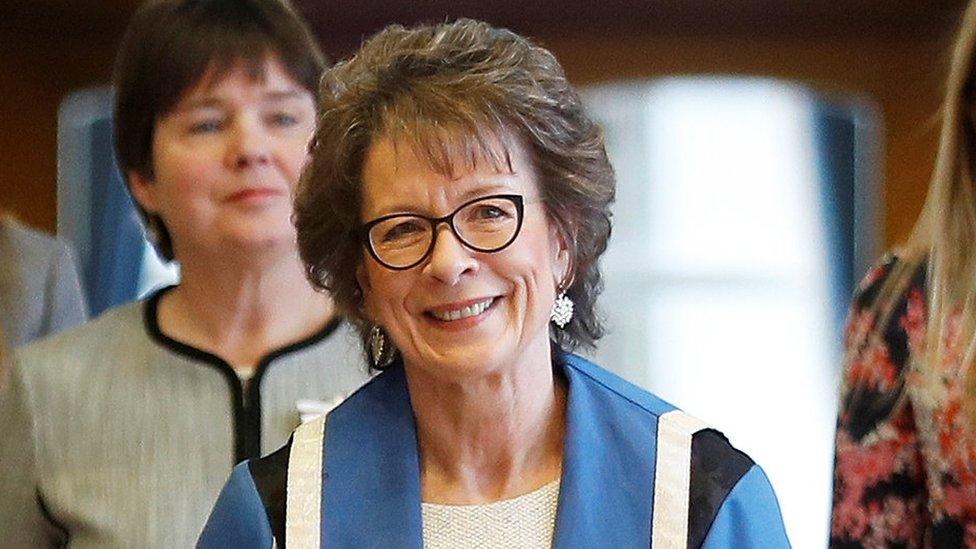
- Published14 December 2021
